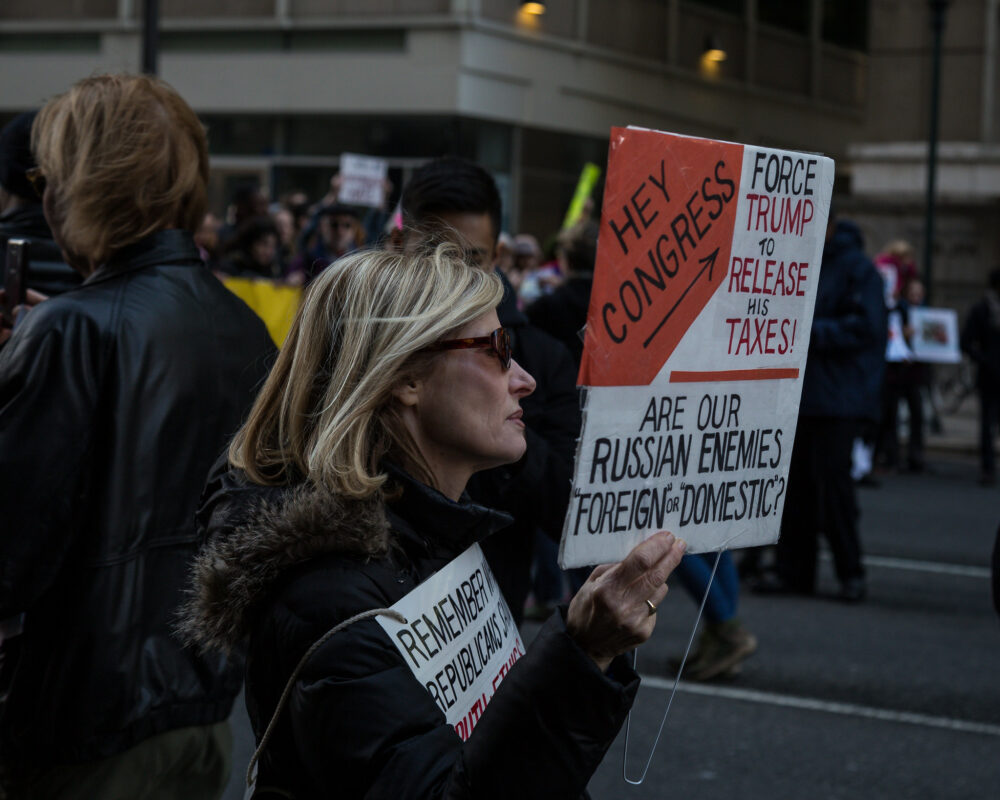In what may be the most shocking story to emerge from the entire Mar-a-Lago document scandal, The New York Times is reporting that officials at intelligence agencies fear that among the classified information Donald Trump stole was details on U.S. assets embedded in foreign countries. The names, locations, and even the existence of such assets is among the most guarded secrets of the nation. But something mysterious has been happening over the last few years, with an unusual number of foreign sources being killed or arrested.
In the past, officials have worried that documents leaked by outlets like WikiLeaks might, either purposely or intentionally, reveal the identity of U.S. sources, putting their lives at risk. But now, intelligence agencies have a greater concern: A man who has a horde of stolen documents, connections to numerous hostile governments, and a frequently expressed disdain for both sources and the intelligence community. Put it all together, and you get one of the most amazing front pages in recent years.
https://twitter.com/highbrow_nobrow/status/1563549407299383304
In the days leading up to the Russian invasion of Ukraine, one fact stood out: The United States had uncannily accurate information about Russia’s plans. It was crystal clear that, not only did the U.S. have a fleet of high resolution satellites and other resources observing Russian movements on the ground, they also had sources inside the Kremlin that were giving the White House a direct pipeline into Vladimir Putin’s every thought.
It’s hard to put a value on that kind of intelligence. In this one case, it’s even possible that Ukraine would not have survived, had it not received early, accurate warnings of both Russian troop build-ups and Putin’s intentions. Thanks to U.S. intelligence sources.
It can take years to establish a reliable source. It can take moments for that point of light to go dark.
Even before he took up residence in the White House, Trump frequently expressed disdain for the intelligence services. Just as he bragged that he was “smarter than all the generals” and declared that his natural instincts allowed him to declare the climate crisis a fraud, Trump has celebrated his “gut” over the combined efforts of agents and analysts. Stories of Trump’s refusal to engage with intelligence briefings have been all too common over the last five years. Trump sneered that his own intelligence chiefs were “naïve” in their assessments of international events, mocked their findings, and insisted they should “go back to school.”
Even more than intelligence agencies, Trump hates whistleblowers. At every instance, he had ridiculed the idea of an anonymous source, insisted that whistleblowers be revealed, then attacked and endangered them once they were known. In his first impeachment, Trump constantly attacked the whistleblower who revealed his attempt to extort Ukrainian President Volodymyr Zelenskyy. He didn’t just ridicule the whistleblower continuously, but insisted that the whistleblower testify in public—Republicans in Congress took up that call.
Most tellingly, when Trump learned an alleged name for the whistleblower, he tweeted it over and over.
Pair Trump’s attitude toward the intelligence services, whistleblowers, and witnesses of all kinds, with his incredible disdain for protecting classified information, and it’s a recipe for utter catastrophe. The revelation of a “NOC list,” giving away dozens of undercover operatives in vital roles, may be the subject of adventure fiction, but it seems like an all-too-real possibility for Trump.
And if the nation needed another reminder of just how lax Trump’s actual security at Mar-a-Lago really is, there was the Pittsburgh Post-Gazette story this week in which a 33-year-old Russian-speaking Ukrainian immigrant convinced Trump that she was actually an heiress of the Rothschild banking family.
In addition to the FBI, law enforcement agents in Canada have confirmed that she has been the subject of a major crimes unit investigation in Quebec since February.
But there she was at Mar-a-Lago, playing golf with Trump and Lindsay Graham. She was there. So were all those documents suspected to hold key information about U.S. sources in some of the most sensitive areas of the world.
Even the hint that one of these sources might have been revealed can result in an immediate, emergency exfiltration to bring them to safety in the U.S. That means that it doesn’t even take the death or arrest of a U.S. source to cripple intelligence gathering. All it takes is concern that a source might have been compromised.
Donald Trump has provided plenty of cause for concern.
